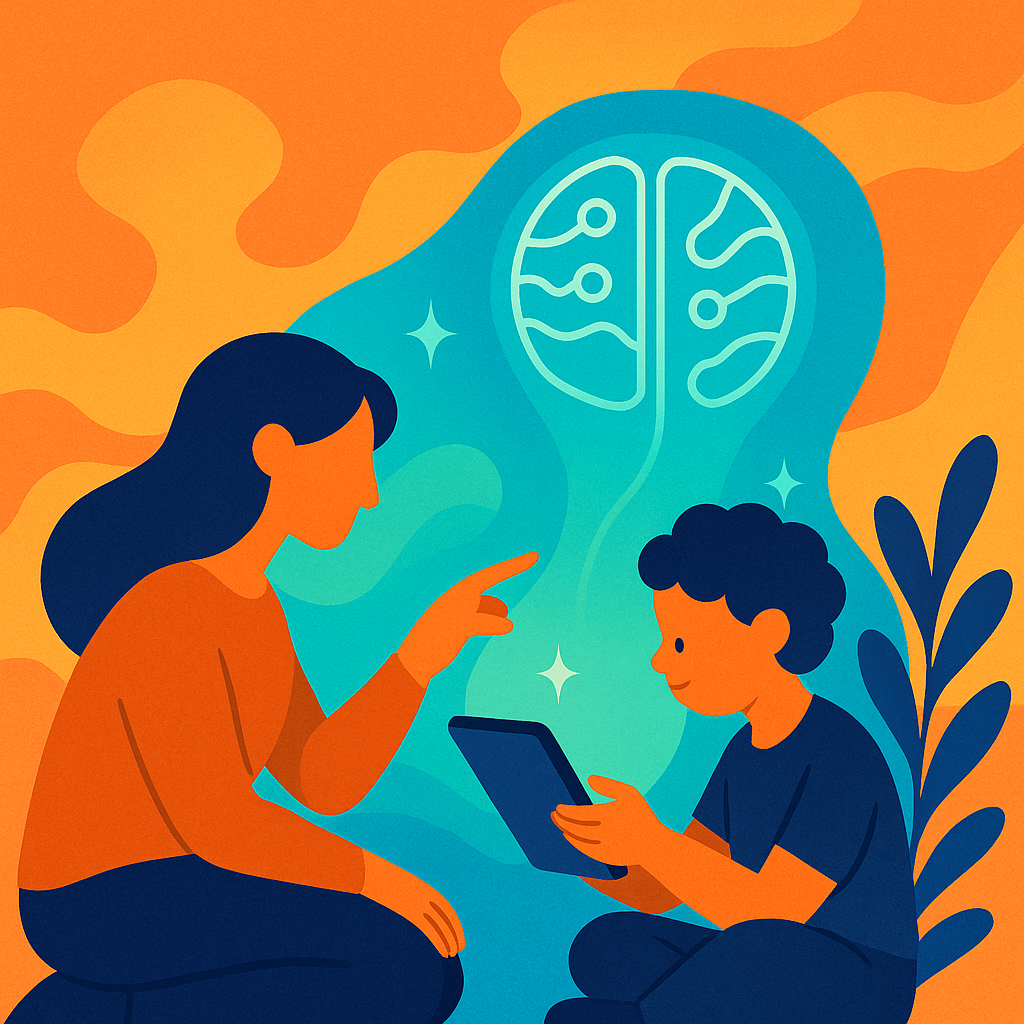Artificial intelligence isn’t some far‑off concept anymore – it’s in your child’s pocket, your kitchen speaker and even the app recommending their next cartoon. Experts note that AI has woven itself into daily life and yet there are very few rules around its use with kids. So what’s a modern parent to do when it feels like the robots are raising our kids?
Just this month OpenAI announced it will roll out parental controls for ChatGPT in October. The move comes after a tragic case in California where a teenager’s suicide was linked to harmful advice from an AI chatbot. These controls will let parents link accounts and receive alerts if the system detects a crisis. It’s a start, but experts warn that controls alone can’t keep children safe – we still have to talk to our kids about how they use AI.
Mark Connelly, a child psychologist at Children’s Mercy, suggests treating AI the way you treat screen time. AI tools aren’t designed for kids and they don’t safeguard personal data, so families should set clear rules and talk about privacy. Not all children will be tech nerds, but if yours is curious, pick up kid‑friendly books or programs about machine learning and learn together. When discussing AI, remind your teen that it’s a tool – it can spark ideas but shouldn’t replace their creativity. Connelly also notes there are no established studies on how chatbots affect cognitive development – we know they can help with homework, but we don’t yet know what long‑term dependence looks like. That’s a fancy way of saying: keep your expectations realistic and encourage variety.
As for safety, the research behind new parental controls shows students are using AI companions for social interaction and mental health advice, with about three‑quarters of teens reporting that they’ve tried a chatbot. That’s why Connelly recommends asking open‑ended questions: How do you use AI? Where do you see it helping or hurting you?. These conversations teach critical thinking and empower your teen to recognise AI’s biases and limitations.
At ForChore we’re all about building independence, whether that’s through chores or tech. Use AI to lighten the mental load (yes, let it write the grocery list), but don’t outsource your judgment. Talk to your child about what they’re asking their AI pal, show them how to turn on privacy settings and remind them there’s no replacement for a real conversation with you.
Sources: Children’s Mercy “Parenting in the age of AI”; Education Week report on OpenAI parental controls.
—
الذكاء الاصطناعي مبقاش حاجة من الخيال العلمي؛ دلوقتي موجود في جيوب أولادنا، وفي السماعات اللي بترد على أسئلتنا، وحتى في التطبيقات اللي بترشح لهم الكرتون الجاي. الخبراء بيقولوا إن الذكاء الاصطناعي دخل كل تفاصيل حياتنا، ومع ذلك مافيش قواعد واضحة لاستخدامه مع الأطفال. كآباء وأمهات، مش مفروض نسيب الروبوتات تربي ولادنا لوحدها.
الشهر ده، شركة أوبن إيه آي أعلنت إن تطبيق ChatGPT هيكون عليه أدوات رقابة أبوية في أكتوبر. الإعلان جه بعد حادث مأساوي في كاليفورنيا لما انتحر مراهق بسبب نصائح ضارة من شات بوت. التحكمات دي هتسمح للأهل يربطوا حسابات أولادهم ويوصل لهم تنبيه لو النظام حس إن الولد بيمر بأزمة. خطوة كويسة، لكنها مش كفاية؛ الخبراء بيأكدوا إن الرقابة لوحدها مش هتحمي أولادنا – لازم نتكلم معاهم عن استخدامهم للذكاء الاصطناعي.
دكتور مارك كونلي من مركز “تشيلدرنز ميرسي” بينصح إننا نتعامل مع الذكاء الاصطناعي زي ما بنتعامل مع وقت الشاشة. الأدوات دي مش معمولة للأطفال ومبتحميش بياناتهم، فمهم نحط قواعد واضحة ونتكلم عن الخصوصية. مش كل الأطفال هيطلعوا مهتمين بالتكنولوجيا، لكن لو ابنك مهتم، ممكن تجيب كتب وبرامج بسيطة عن التعلم الآلي وتتعلموا سوا. لما تتكلموا عن الذكاء الاصطناعي، فكروا ولادكم إنه وسيلة تساعدكم على الإبداع مش بديل. ولسه مافيش دراسات بتقول تأثير الروبوتات على تطور المخ – إحنا عارفين إنها ممكن تساعد في الواجب، لكن مش عارفين تأثير الاعتماد عليها على المدى الطويل.
أما عن الأمان، فالدراسات اللي ورا أدوات الرقابة الجديدة بتوضح إن الطلاب بيستخدموا الذكاء الاصطناعي للدردشة والنصائح النفسية، وتلات أرباع المراهقين جربوا شات بوت قبل كده. عشان كده دكتور كونلي بيقترح نسأل أسئلة مفتوحة لولادنا: “إنت بتستخدم الذكاء الاصطناعي في إيه؟ في رأيك بيساعدك ولا بيدرّك؟”. الأسئلة دي بتعلمهم يفكروا بطريقة نقدية ويعرفوا إن الذكاء الاصطناعي فيه تحيزات وله حدود.
في ForChore، إحنا بنشجع الاستقلالية سواء من خلال المهام المنزلية أو التعامل مع التكنولوجيا. استخدم الذكاء الاصطناعي لتخفيف الضغط ( يعني مافيش مشكلة يكتب لك قائمة المشتريات )، بس ما تعتمدش عليه في كل حاجة. اتكلم مع ابنك عن الأسئلة اللي بيسألها للروبوت، وارفقه في تفعيل إعدادات الخصوصية، وفكره إن ما فيش بديل عن الكلام الصريح معاك.







Leave a Reply
You must be logged in to post a comment.